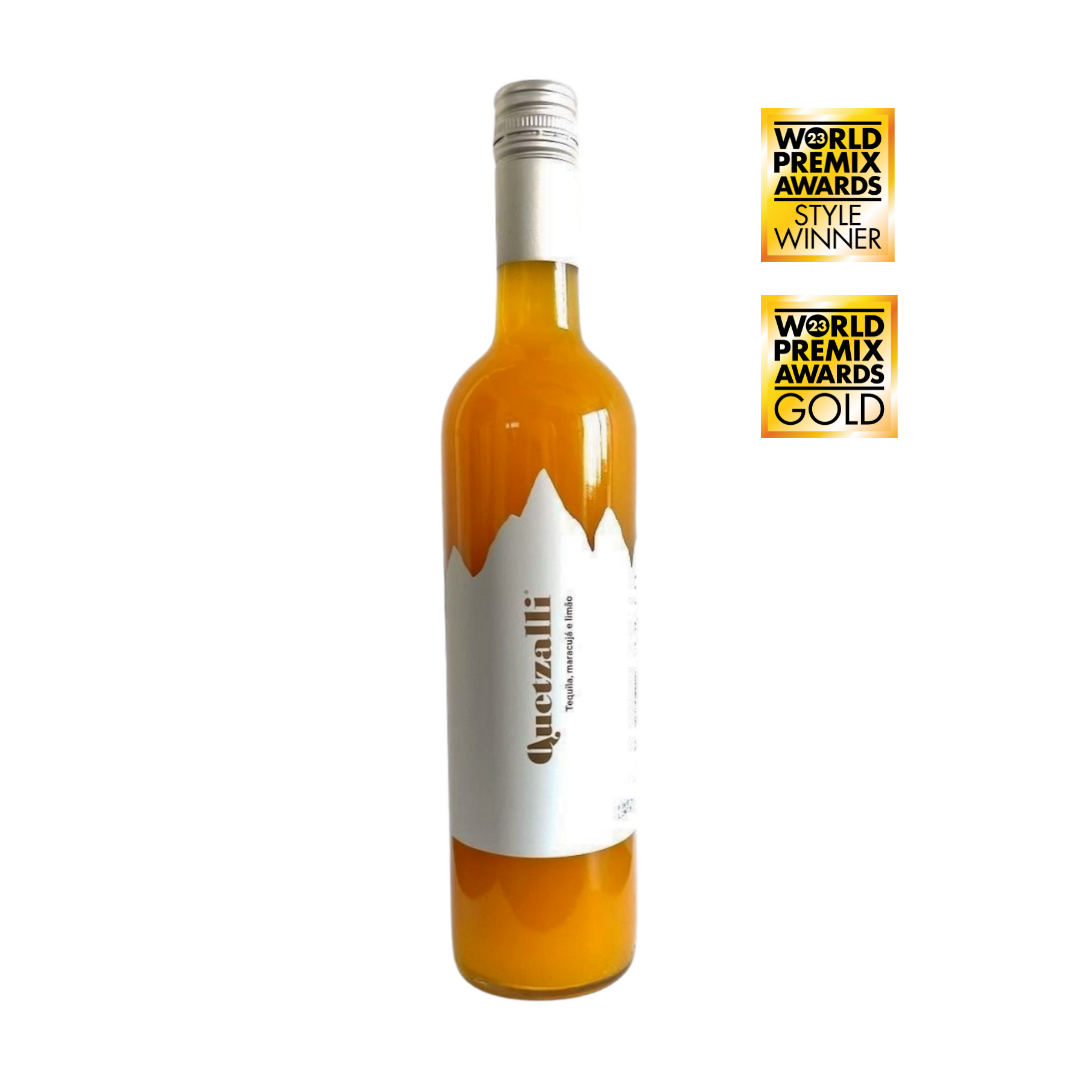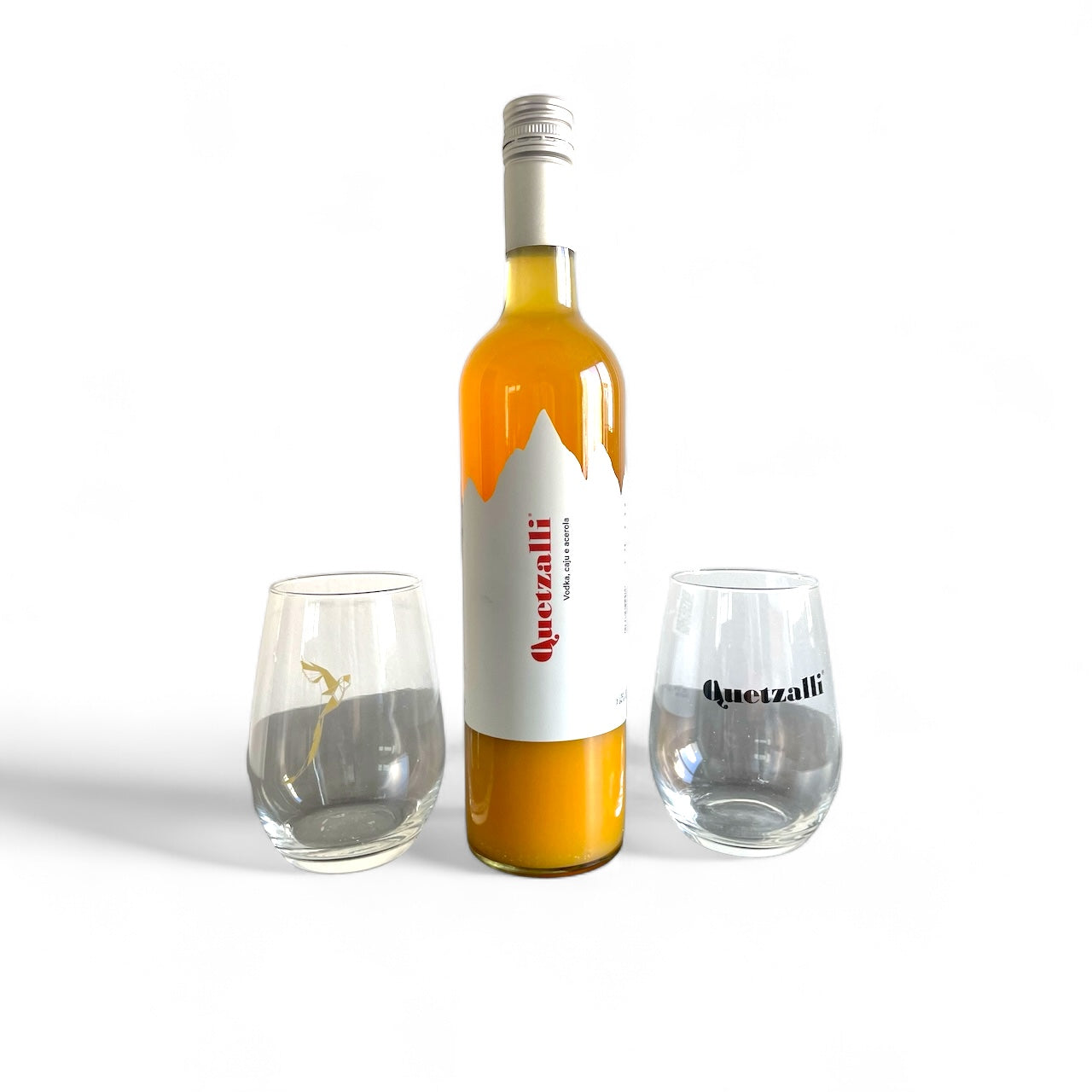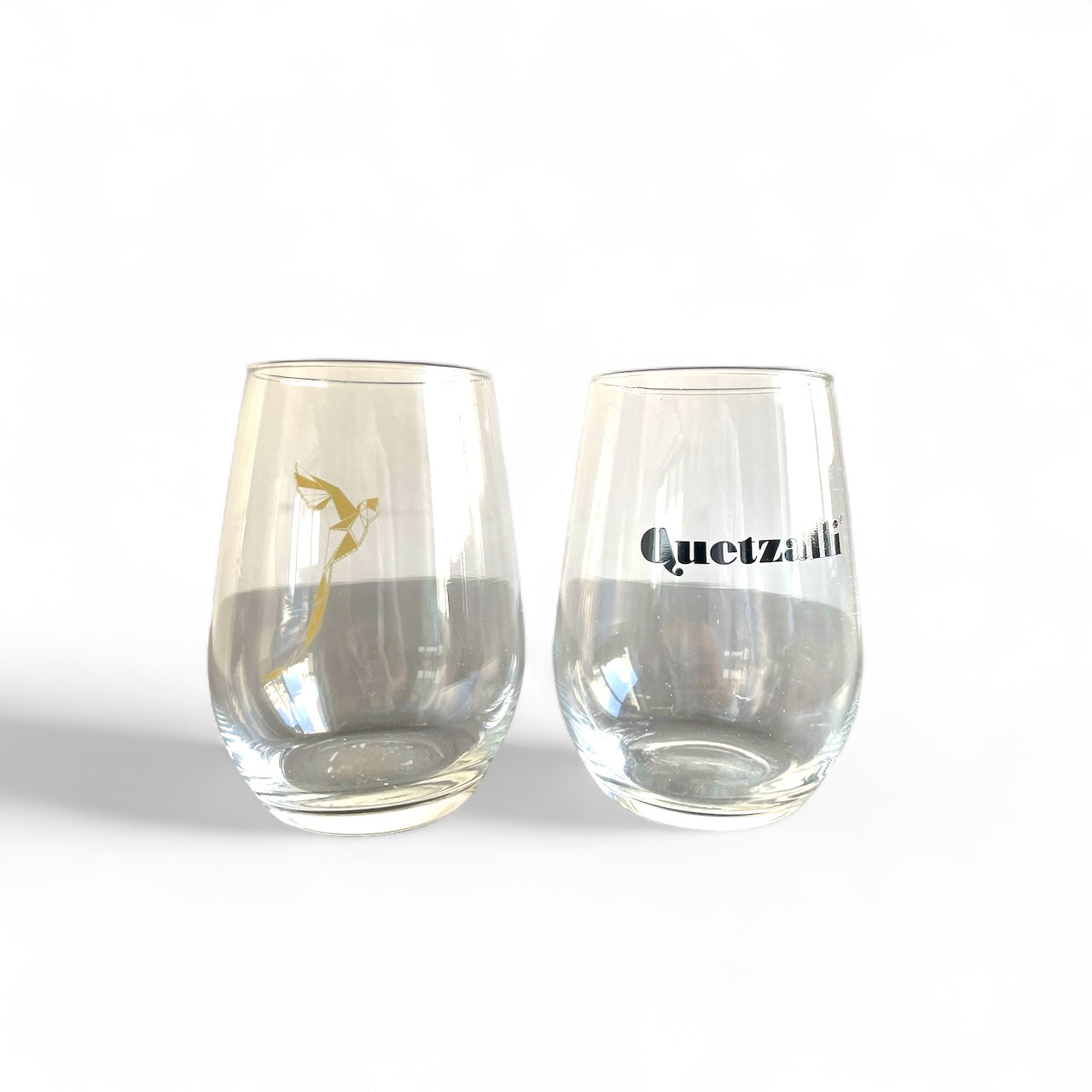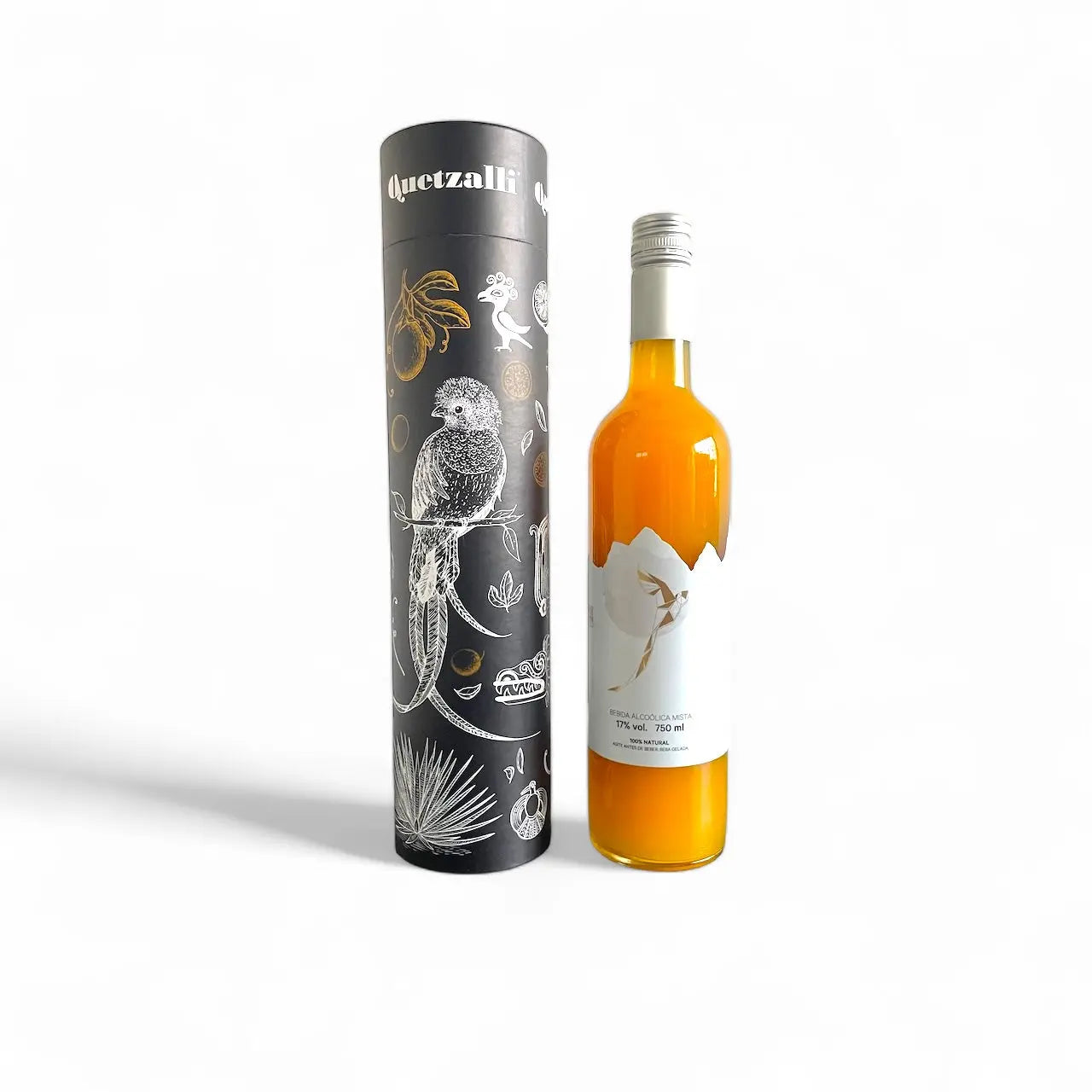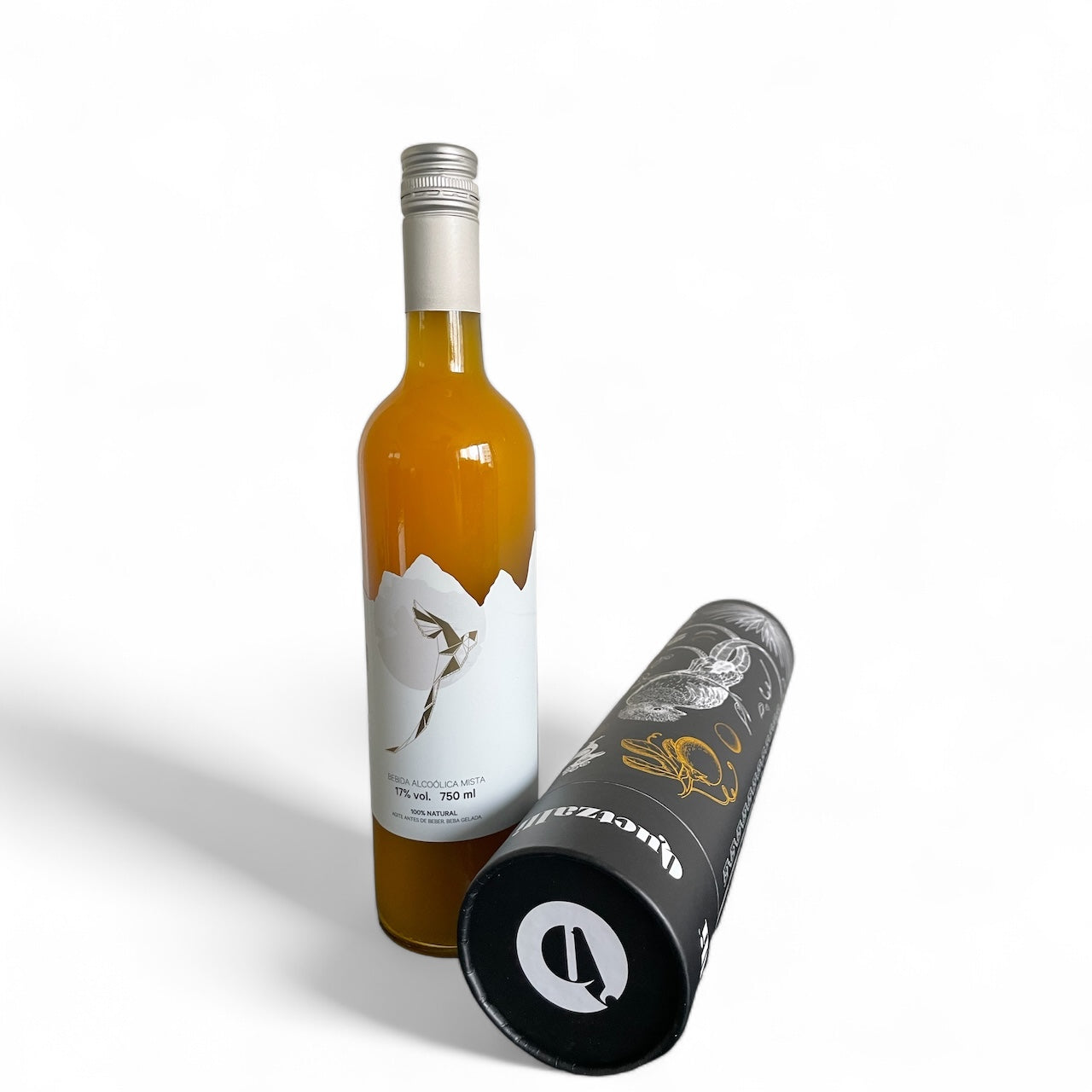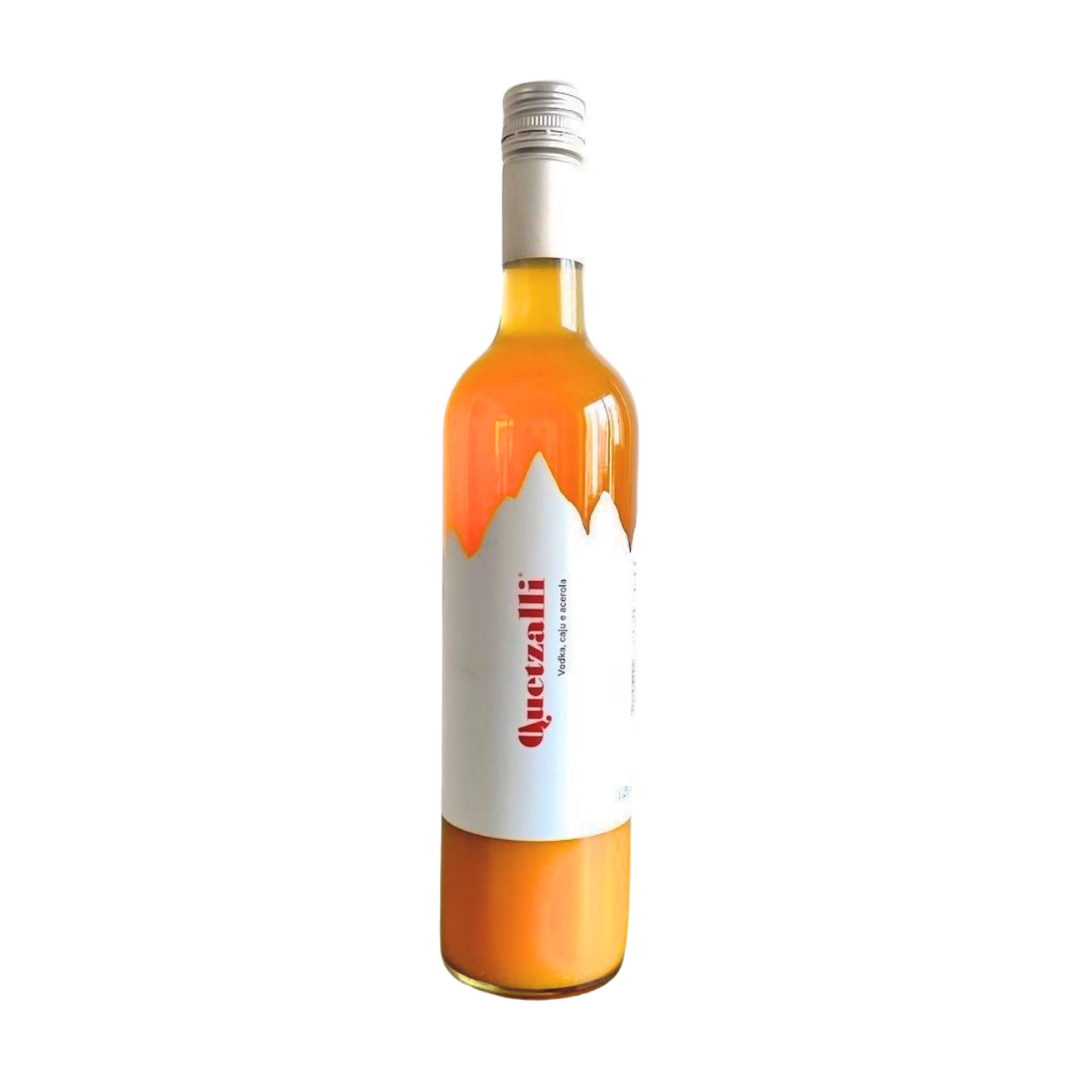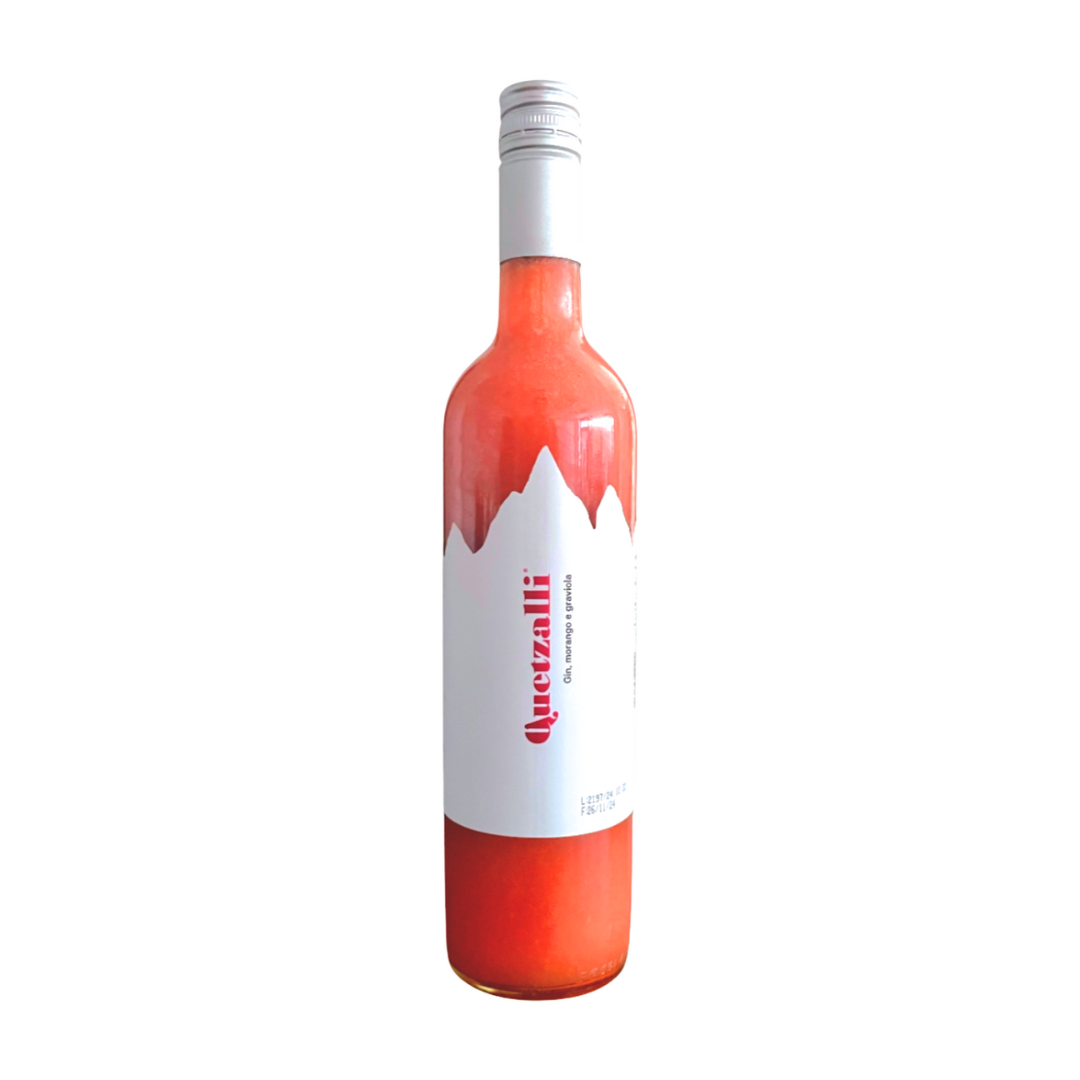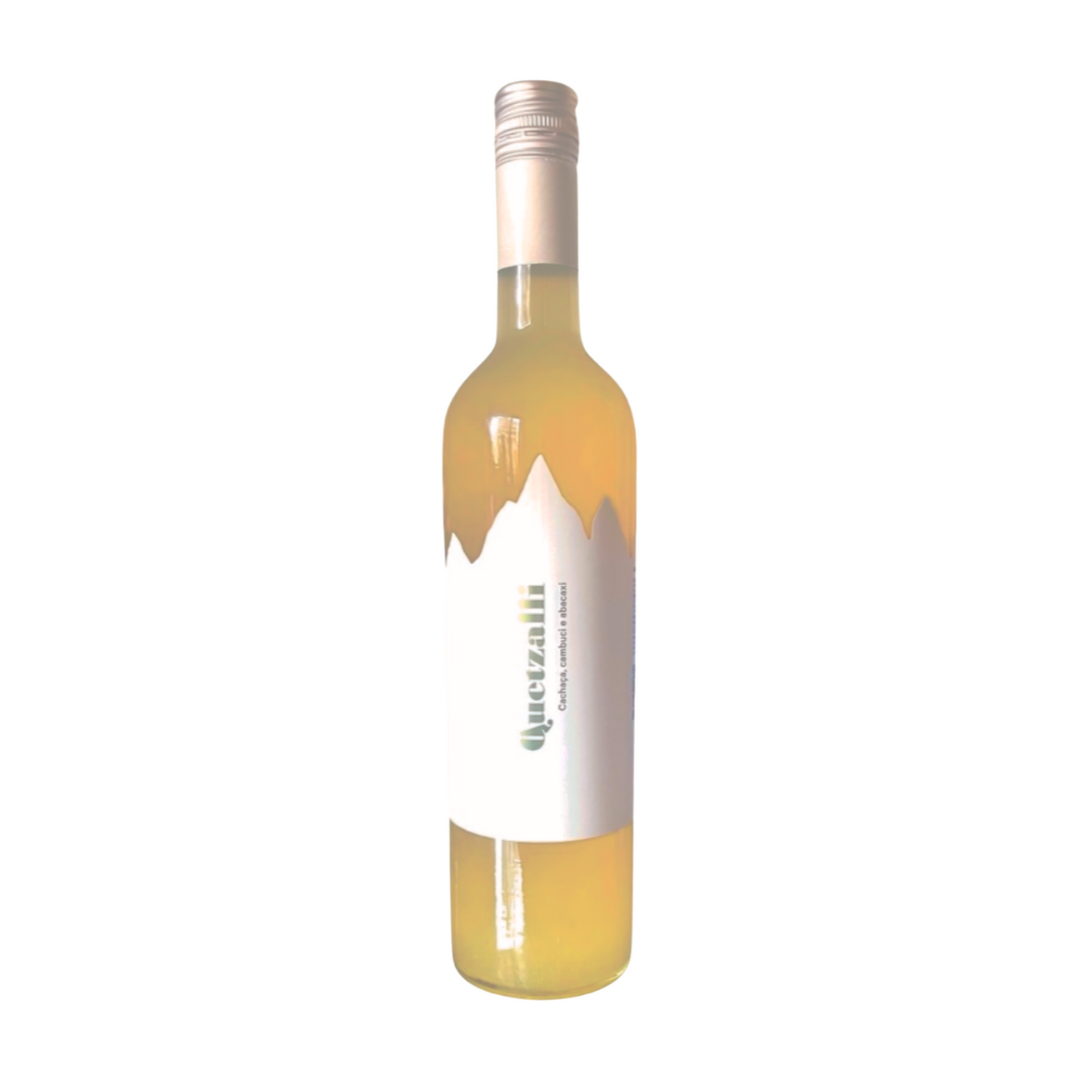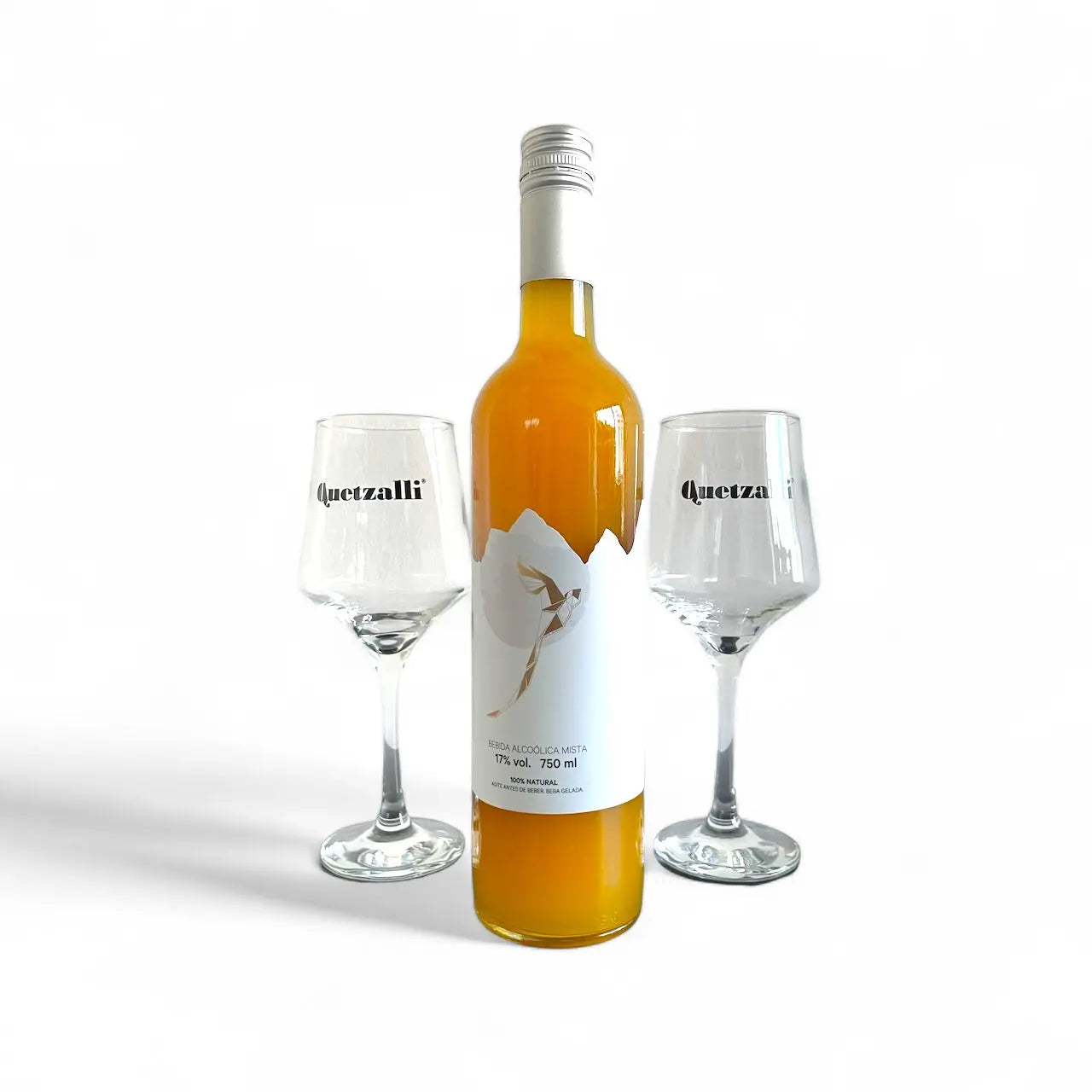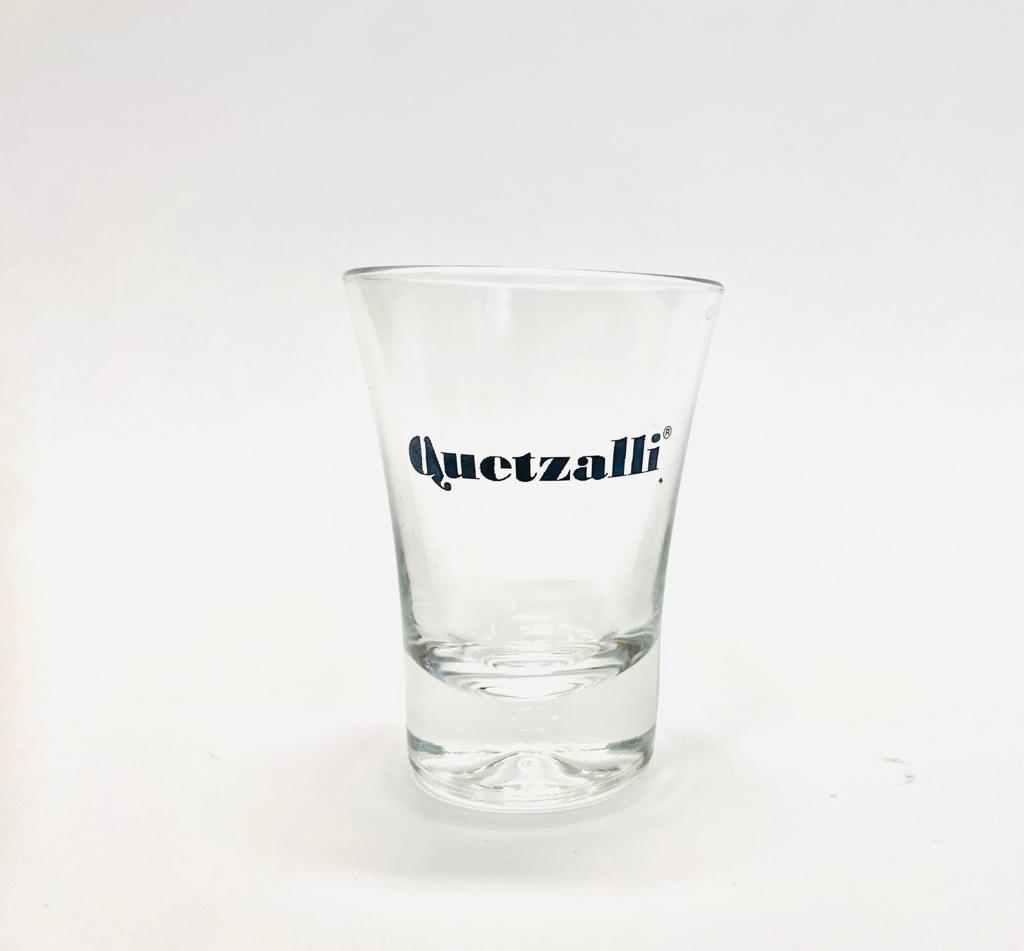When the hangover is more than just alcohol
You wake up with a pounding head, a dry mouth, and a churning stomach, wondering, "But I didn't even drink that much..." If this feeling sounds familiar, it's possible the culprit isn't just the alcohol content of your drink—it's the chemical additives used in its production.
While many people associate hangovers exclusively with excessive alcohol consumption, science shows that artificial ingredients , such as colorings, flavorings and preservatives, can also contribute significantly to feeling unwell the next day.
In this article, we'll understand how these additives impact the body, why they're in so many alcoholic beverages, and how opting for drinks with fewer synthetic additives and more natural ingredients , like those from Quetzalli, can be a smarter choice for your body and the planet.
What are chemical additives in alcoholic beverages?
Chemical additives are substances intentionally added to beverages to improve color, flavor, aroma, stability, or extend shelf life. In alcoholic beverages, these may include:
-
Artificial colors (e.g., tartrazine, sunset yellow)
-
Synthetic flavorings
-
Preservatives such as sodium benzoate or sulfur dioxide
-
Stabilizers
-
Sugars and artificial sweeteners
These additives are often used in ready-to-drink (RTD) beverages , bottled cocktails, industrial liquors, low-quality wines, and colored alcoholic beverages aimed at young people.
Although approved by regulatory agencies in certain concentrations, excessive or frequent consumption can cause adverse reactions in many people.
How do chemical additives make a hangover worse?
A hangover is the result of several physiological factors combined, such as dehydration, electrolyte imbalance, low blood sugar, inflammation, and the accumulation of toxic byproducts of alcohol metabolism (such as acetaldehyde).
But when there are chemical additives in the mixture , the body has even more work to process substances that are often not well recognized by the body.
1. They increase the liver load
The liver is primarily responsible for "cleansing" the blood after alcohol consumption. When preservatives, dyes, and other artificial compounds are added to the equation, the organ has to work twice as hard to metabolize everything—and this can prolong the effects of alcohol and intoxication.
🔬 According to a study in the International Journal of Hepatology (2015), substances such as dyes and preservatives can aggravate hepatic oxidative stress, contributing to symptoms such as headache, nausea, and fatigue.
Source: https://doi.org/10.1155/2015/760246 (nofollow)
2. They can cause allergic or inflammatory reactions
Some people are sensitive to additives such as sulfites (common in wine), monosodium glutamate, or certain dyes. This can cause hangover-like symptoms—such as aches, nasal congestion, headache, and itchy skin—even with moderate alcohol consumption.
⚠️ ANVISA lists several additives with the potential to cause adverse reactions, especially in sensitive people.
Source: https://www.gov.br/anvisa (nofollow)
3. They interfere with sleep and recovery
Alcohol is already a natural enemy of deep sleep. Synthetic flavorings, sweeteners like aspartame, and preservatives can increase brain activity during the night, reducing the body's recovery time—which worsens fatigue the next day.
More colorful drinks = more colorful hangover?
Yes. In general, the more artificially colored or sweetened a drink is, the greater the risk of causing a severe hangover. This happens because:
-
Artificial dyes such as FD&C Red 40 , Blue 1 , and Yellow 5 are metabolized slowly and can cause hyperactivity and immune reactions.
-
Synthetic flavorings often used to "mimic" citrus or tropical fruits are not the same as natural essential oils—and can irritate the digestive tract.
-
Sugars and syrups contribute to dehydration and increase insulin release, worsening the post-drinking energy crash.
What types of drinks tend to have more additives?
-
Low-cost ready-to-drink drinks
-
Industrialized coolers
-
Cocktails with very bright colors
-
Some liqueurs and bitters
-
Cheap wines with lots of preservatives (especially sulfites)
These products, often aimed at young audiences, may seem more "fun", but they contain an explosive combination of alcohol + sugar + synthetic additives.
The alternative? Drinks with fewer additives and more natural ingredients.
Fortunately, there is already a growing movement in the beverage industry towards clean label composition — that is, with recognizable, natural ingredients and little or no synthetic additives .
Quetzalli fits into this proposal.
🍍 Quetzalli: lighter, less chemical excess
Quetzalli is a line of ready-to-serve (RTS) drinks , developed with a focus on convenience, flavor, and greater respect for your body. Our drinks are made with:
-
Natural fruits, including from Brazilian biodiversity
-
Ingredients you recognize—without that endless list of chemical names
-
No artificial colors or flavors
-
No synthetic stabilizers or sweeteners
-
Quality spirits: gin, tequila, cachaça and vodka
All of this results in a drink that's lighter on the body — and that delivers real flavor, with much less impact the next day.
🍸 Less synthetic additives, more real experience.
Quetzalli is about appreciating the moment with balance — and remembering it with pleasure.
Tips to avoid a chemical hangover
Even with more natural drinks, it's important to take some precautions to avoid intense hangovers:
✅ 1. Read the label
Be wary of drinks with lots of chemical names or colorings in the fine print. If it looks more like a laboratory formula than a kitchen recipe, think again.
✅ 2. Avoid excesses
Even the cleanest drinks can cause a hangover if consumed in excess. The key is balance—and constant hydration.
✅ 3. Choose brands that value transparency
Look for beverages that clearly explain their ingredients, origin, and purpose. Quetzalli, for example, is committed to Brazilian biodiversity and conscious consumption.
✅ 4. Hydrate yourself before, during and after
Drinking water while consuming alcohol reduces the impact of dehydration and helps the body better process both alcohol and additives.
Final considerations: the hangover is to blame, but so is the label
Most people associate a hangover with how much they've had to drink. But it's time to consider what you drank, too. Chemical additives can turn a light night into a heavy day the next day—without warning.
When in doubt, choose options with more natural ingredients and little or no synthetic additives, like Quetzalli — which respect both your body and your pleasure.
Remember: conscious consumption starts with your beverage choices . And a hangover doesn't have to be part of the package.
Scientific references
-
Hangover: pathophysiology, prevention and treatment – Brazilian Society of Clinical Medicine.
https://www.sbcm.org.br (nofollow) -
Effects of Food Additives on Liver Function – International Journal of Hepatology, 2015.
https://doi.org/10.1155/2015/760246 (nofollow) -
Artificial colors and human behavior – ANVISA.
https://www.gov.br/anvisa (nofollow) -
Sleep and hangover recovery: impact of synthetic additives – Journal of Sleep Research, 2018.
https://doi.org/10.1111/jsr.12724 (nofollow)


